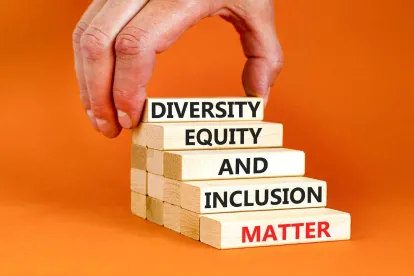On June 29, 2023, the U.S. Supreme Court decided Students for Fair Admissions, Inc. v. President and Fellows of Harvard College, holding that Harvard College and the University of North Carolina (UNC)’s admissions programs violated the Equal Protection Clause of the Fourteenth Amendment. While the decision does not directly impact private employers’ diversity, equity, and inclusion (DEI) programs and policies, employers may wish to examine such programs and policies, in particular policies focusing on candidate pools where a candidate’s race/ethnicity/gender is the primary focus for acceptance, not because the law has changed for private employers but because the scrutiny has been heightened.
Impact on Private Employers
The Court’s ruling is limited to affirmative action in the context of college admissions as violative of the Equal Protection Clause of the Fourteenth Amendment, as opposed to Title VII of the Civil Rights Act of 1964 or Executive Order 11246, under which many corporate affirmative action plans or DEI initiatives are permissible and/or required. Programs that advance a company’s diversity objectives are not inherently unlawful and are permissible when they are implemented to address historical discrimination or to promote increased diversity and inclusion of members of historically underrepresented groups in the workforce. The Equal Employment Opportunity Commission (EEOC) expressly permits the implementation of such programs, so long as they do not “require the discharge of non-targeted employees”; “create an absolute bar to the advancement of nontargeted employees”; or allow for the express use of quotas, which the EEOC defines as “the inflexible reliance solely on numbers that ignore qualifications”1 and which are unlawful under Title VII. In short, programs should not be designed to give preference to members of one race or gender over members of any other groups. And an individual who benefits from the implementation and deployment of an employer’s diversity program must be qualified for the relevant position (although, notably, they do not necessarily have to be the most qualified candidate for the position).
In the wake of Students for Fair Admissions, private employers should not feel pressured to abandon DEI goals and initiatives. There is no legal requirement for private employers to have a diversity program, but failure to establish training, outreach, and other programs to address systemic issues in the workplace could result in potential risk of claims of inequity, bias, and discrimination, including traditional discrimination lawsuits, from members of historically underrepresented groups. Some potential claims could be based on perceptions of unfair treatment; violation of state and federal civil rights and equal employment opportunity laws, including failure to hire or promote; and fair pay.
Metrics-Based Programs
Employers who utilize metrics-based programs should be mindful of the strict scrutiny analysis the Supreme Court used and may wish to examine whether the metrics used “further compelling interests” and whether the use of race is “narrowly tailored” to achieve that interest. Although metrics-based programs are not facially unlawful, such programs must be designed and implemented in such a way that does not supplant members of one group in preference of members of another group or that gives the appearance of a quota system; such an appearance risks running afoul of federal anti-discrimination laws, including Title VII. The EEOC states that employers may implement metrics-based diversity programs so long as they do not infringe upon the rights of employees who are not the targeted beneficiaries of such programs Employers are free to implement metrics-based programs when the employer has identified an “imbalance in traditionally segregated job categories.”
Federal Contractors
There is uncertainty as to how the Students for Fair Admissions decision will impact contracting employers who are required to develop and conform with Affirmative Action Plans pursuant to Executive Order 11246 and corresponding government regulations and governed by the Department of Labor Office of Contract Compliance Programs. However, absent a specific ruling making such programs unlawful, contractors should continue to adhere to such requirements, specifically given the Biden administration’s focus on equity and inclusion for contractors and its workers.
Conclusion
Going forward, employers with DEI programs may wish to deploy a narrowly tailored program so as to (1) target a conspicuous imbalance in certain job positions or departments; (2) avoid infringing upon the rights of non-minorities in employment decisions around hiring and promotion; and (3) avoid explicit quotas, preferences, and “plus factors.” Employers should also look to ways to achieve their diversity initiatives through ways that are not necessarily race-conscious, such as recruiting at Historically Black Colleges and Universities.
Employers should aim broadly to create a company culture that promotes an inclusive workplace, rather than just diversity metrics that ultimately will not assist the company in retaining diverse employees. Such efforts may include establishing employee resource groups open to all employees; mentorship and sponsorship programs; education and training programs; and internal procedures for removing bias; all of which still are permissible post-Students for Fair Admissions. Corporate giving initiatives that aim to increase the pipeline of minority students to attend college and university may also increase long-term goodwill among those populations and, in turn, increase the pipeline to creating a diverse company workforce.
1 Best Practices of Private Sector Employers | U.S. Equal Employment Opportunity Commission (eeoc.gov)




 />i
/>i

